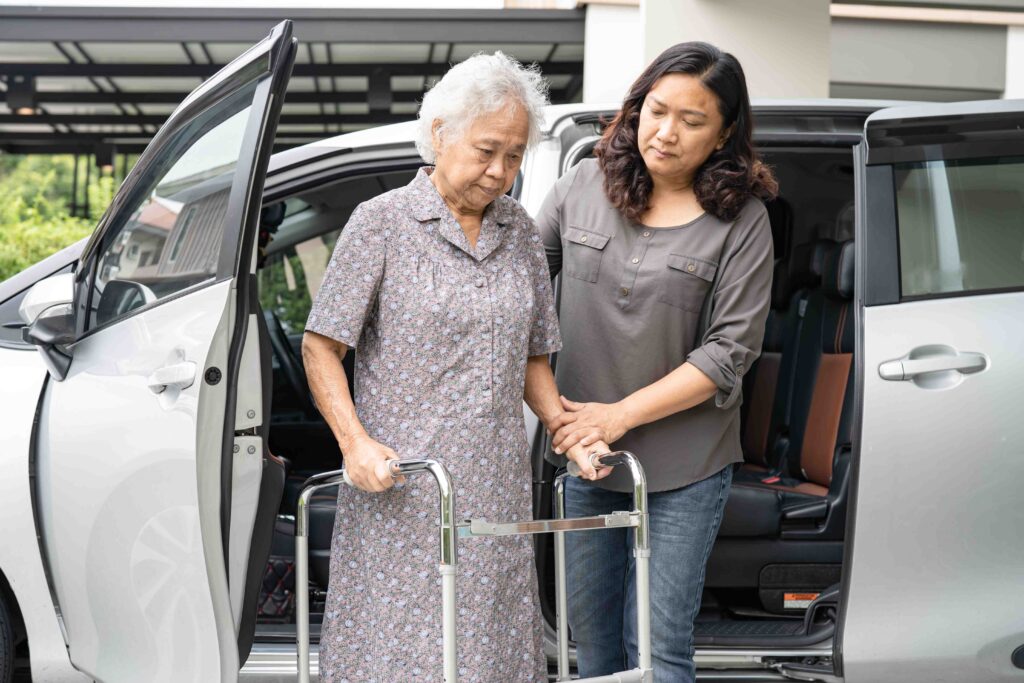The Ultimate Guide to Mobility Aids: Types, Benefits, and Uses

Why Mobility Aids Are Important
When it comes to aids mobility, it’s crucial to know what options are available and how they can improve your daily life. Aids mobility include a range of tools designed to help those with difficulty moving or performing daily tasks. These devices help people maintain independence and improve their quality of life.
Quick overview:
- Wheelchairs: manual or powered, offer freedom of movement.
- Walkers: give stability and support for walking.
- Canes: assist with balance and can help reduce pain.
- Scooters: provide mobility over longer distances.
- Crutches: support for those recovering from injuries.
I’m Sazan Sylejmani, a Pharmacy Manager with expertise in aids mobility solutions. My background includes patient counseling and managing mobility challenges, ensuring everyone has the right tools for their needs.
Let’s explore the types, benefits, and uses of these essential mobility aids.
Types of Mobility Aids
When it comes to mobility aids, there are several types to choose from, each designed to meet specific needs. Let’s break down the options:
Wheelchairs
Wheelchairs are essential for those who cannot put weight on their lower limbs or who are unable to walk. They come in two main types:
- Manual Wheelchairs: These are propelled by the user or pushed by someone else. They are lightweight and ideal for short distances and indoor use.
- Power-Driven Wheelchairs: These are battery-operated and can be controlled using a joystick. They offer greater independence, especially for those with limited upper body strength.
Accessories like cushions, trays, and custom seating can improve comfort and usability.
Walkers
Walkers provide stability and support, making them ideal for people who need extra help walking. There are different types to consider:
- Standard Walkers: These have four legs and no wheels. They offer maximum stability and are great for indoor use.
- Rollators: These walkers have four wheels, handlebars, and a seat. They often include hand brakes for safety and are perfect for those who need to rest frequently.
Canes
Canes are simple yet effective tools for improving balance. They come in various forms:
- Single-Point Canes: These have one leg and are best for minor balance issues.
- Quad Canes: These have a four-footed base, offering more stability and support. They are ideal for those who need more assistance.
Canes can be made from materials like wood or aluminum and often feature ergonomic handles for comfort.
Crutches
Crutches are typically used during recovery from leg injuries. There are two main types:
- Underarm Crutches: These fit under the armpits and are used by placing weight on the hands. They are common but can cause discomfort if not used correctly.
- Forearm Crutches: These have a cuff that goes around the forearm, providing better support and comfort. They are often used for long-term mobility issues.
Scooters
Scooters are similar to wheelchairs but are often used for longer distances and outdoor activities. There are different models:
- Three-Wheel Scooters: These are more maneuverable and easier to steer in tight spaces.
- Four-Wheel Scooters: These offer more stability and are better suited for rough terrain.
Power-Driven Devices
Power-Driven Devices include a range of mobility aids powered by batteries or engines:
- Golf Carts: Useful for getting around large properties or communities.
- Segways: These are two-wheeled, self-balancing devices that are fun and functional for those who can stand.
- ATVs: All-Terrain Vehicles can be adapted for use by people with mobility issues, providing access to outdoor areas.
Benefits of Mobility Aids
Mobility aids come with a wide range of benefits that can significantly improve your quality of life. Let’s break down the key advantages in terms of independence, comfort, safety, and mental health.
Independence
Mobility aids can greatly improve your independence by making daily activities easier. Whether it’s getting out of bed, preparing meals, or moving around the house, these tools can help you do it all without needing constant assistance.
- Daily Activities: Simple tasks like eating, dressing, and reaching for objects become manageable with aids like weighted utensils, shoehorns, and reachers.
- Travel: Mobility scooters and foldable wheelchairs make it easier to steer long distances, whether you’re going to the grocery store or traveling on vacation.
- Social Inclusion: Being able to move around freely allows you to participate in social activities, reducing feelings of isolation and keeping you connected with friends and family.
Comfort
Comfort is another crucial benefit of mobility aids. They are designed to be ergonomic and customizable to meet individual needs.
- Ergonomics: Wheelchairs and walkers often come with padded seats and handles to reduce strain on your body.
- Accessories: Items like overbed tables and door knob grips add convenience and ease to your daily routine.
- Customization: Many mobility aids can be adjusted for height and angle, ensuring that they fit your body perfectly.
Safety
Safety is a top priority when it comes to mobility aids. These tools are designed to provide stability and support, reducing the risk of falls and injuries.
- Fall Prevention: Handrails in bathrooms and bed assist bars can help you move safely and confidently.
- Stability: Canes and walkers offer multiple points of contact with the ground, providing a stable base for movement.
- Support: Raised toilet seats and toilet safety rails make it easier to sit and stand, offering additional support where it’s needed most.
Mental Health
The psychological benefits of mobility aids are just as important as the physical ones. They can boost your confidence and reduce anxiety, leading to a happier, more fulfilling life.
- Confidence: Knowing you have the support you need can make you more willing to engage in activities you enjoy.
- Reduced Anxiety: The added safety and independence can alleviate worries about falling or needing constant help.
- Social Interaction: Being able to move around freely allows you to participate in social activities, improving your overall mental well-being.
Mobility aids are not just tools for movement; they are essential for maintaining a high quality of life. From enhancing your independence to providing comfort and safety, these aids offer numerous benefits that can make everyday activities more manageable and enjoyable.
Next, let’s explore the various uses of mobility aids and how they can help different groups of people, including the elderly, disabled, and those recovering from injuries.
Uses of Mobility Aids
Elderly
As we age, our bodies naturally become less agile. Conditions like arthritis and osteoporosis make simple tasks like walking or standing difficult. Mobility aids such as walkers and canes can provide the support needed to maintain independence.
For example, Mrs. Johnson, an 82-year-old, uses a walker to move around her home safely. She says, “My walker has given me the confidence to move freely without the fear of falling.”
Disabled
People with physical impairments or congenital conditions often rely on mobility aids for accessibility. Devices like wheelchairs and scooters help them steer their daily lives more easily.
Consider John, who was born with cerebral palsy. His power-driven wheelchair allows him to attend school and participate in community events. “My wheelchair is my freedom,” he shares.
Injury Recovery
Recovering from an injury can be a long process. Mobility aids like crutches and rollators are essential during post-surgery recovery or when healing from fractures.
Take Sarah, who recently had knee surgery. Her physical therapist recommended a walker to aid her in the initial stages of rehabilitation. “The walker has been a lifesaver during my recovery,” she notes.
Chronic Conditions
Chronic conditions such as multiple sclerosis, Parkinson’s disease, and cerebral palsy require long-term mobility solutions. Devices like scooters and power-driven wheelchairs offer the necessary support.
For instance, Mark, who has Parkinson’s disease, uses a four-wheel scooter to maintain his active lifestyle. “Without my scooter, I wouldn’t be able to enjoy my daily walks in the park,” he explains.
Mobility aids are not just tools; they are lifelines that improve the quality of life for various groups of people. Whether you are elderly, disabled, recovering from an injury, or dealing with a chronic condition, the right mobility aid can make a significant difference.
Frequently Asked Questions about Aids Mobility
What are the aids of mobility?
Mobility aids are tools designed to help people with limited mobility move around more easily and safely. These aids range from wheelchairs and walkers to canes, crutches, and scooters. Each type of aid serves a unique purpose and can be customized to meet individual needs.
- Wheelchairs: Available in manual and power-driven models, wheelchairs provide mobility for those who cannot walk at all. Accessories like cushions and trays add comfort and functionality.
- Rollators: These walkers with wheels offer support and stability, especially for those who need help balancing.
- Ramps: Essential for wheelchair users, ramps provide access to buildings and vehicles.
- Accessories: Items like Dycem slip-resistant material and reacher tools can make daily tasks easier.
Does aids affect mobility?
When discussing HIV/AIDS, it’s important to recognize that the condition itself can impact mobility. HIV can lead to neuroinflammation and cognitive impairment, which may affect coordination and balance. For instance, some people with HIV experience muscle weakness or numbness, making it challenging to move around without assistance.
Mobility aids can help manage these symptoms, allowing individuals to maintain their independence. It’s crucial to consult with healthcare providers to find the most suitable aid for your specific needs.
What are the negatives of mobility aids?
While mobility aids offer numerous benefits, they also come with potential drawbacks:
- Injury Risks: Improper use of aids like crutches can lead to falls or additional injuries. It’s essential to receive proper training on how to use these devices.
- Crutch Paralysis: Prolonged use of underarm crutches can compress nerves, leading to a condition known as crutch paralysis. Switching to forearm crutches can mitigate this risk.
- Safety Concerns: Devices like power-driven scooters or golf carts must be used carefully to avoid accidents. Always follow safety guidelines and maintain your equipment.
Understanding these risks can help you make informed decisions and use mobility aids more effectively. For more information on choosing the right aid, consult your healthcare provider.
Conclusion
Mobility aids play a significant role in enhancing the quality of life for many people, whether they are elderly, disabled, recovering from an injury, or managing chronic conditions. These devices offer independence, comfort, safety, and mental health benefits, allowing users to perform daily activities, travel, and engage socially with greater ease.
At Westmont Pharmacy, we understand the importance of finding the right mobility aid to meet your specific needs. Our team is dedicated to providing personalized care and expert guidance to help you select the most suitable device. Whether you need a wheelchair, walker, cane, scooter, or any other mobility aid, we have a wide range of high-quality supplies to choose from.
Our goal is to make your shopping experience as stress-free as possible. We offer competitive pricing, professional service, and a comprehensive selection of products to ensure you find exactly what you need. Plus, we provide additional services such as prescription compounding, medication synchronization, and prescription at-home delivery to support your overall health and well-being.
For more information on our products and services, visit our Medical Equipment Rentals page. Let us help you find the right solutions to improve your mobility and improve your daily life.
Find reliable solutions that promote mobility, comfort, and dignity at home with Westmont Pharmacy. We are here to support you every step of the way.
